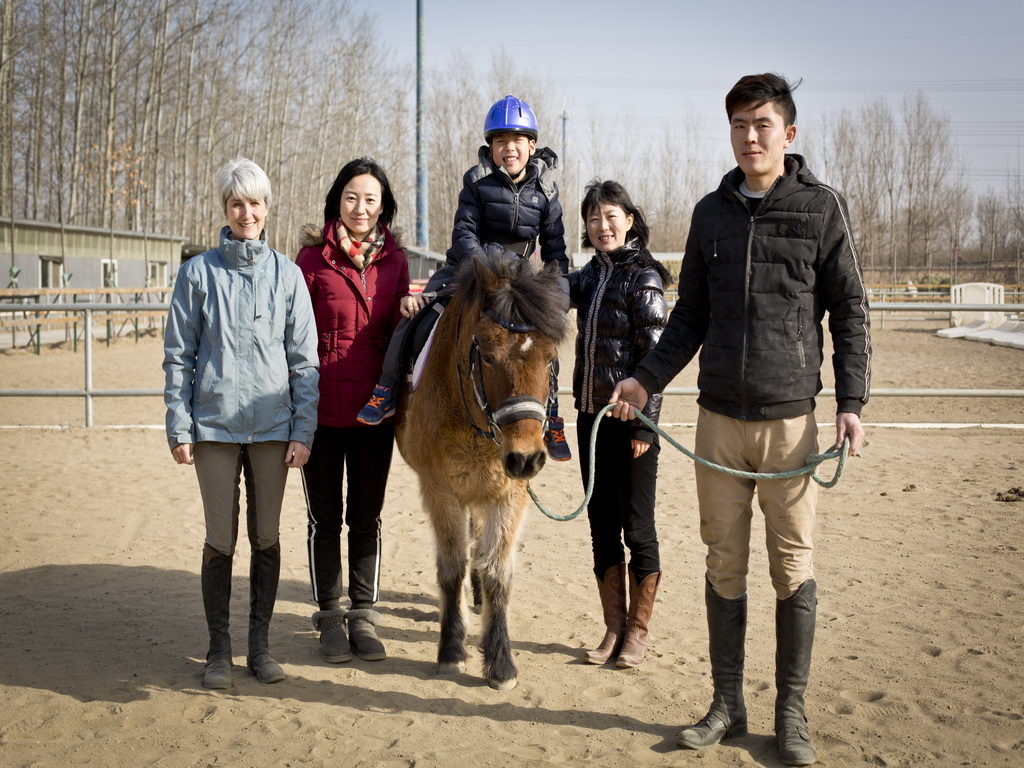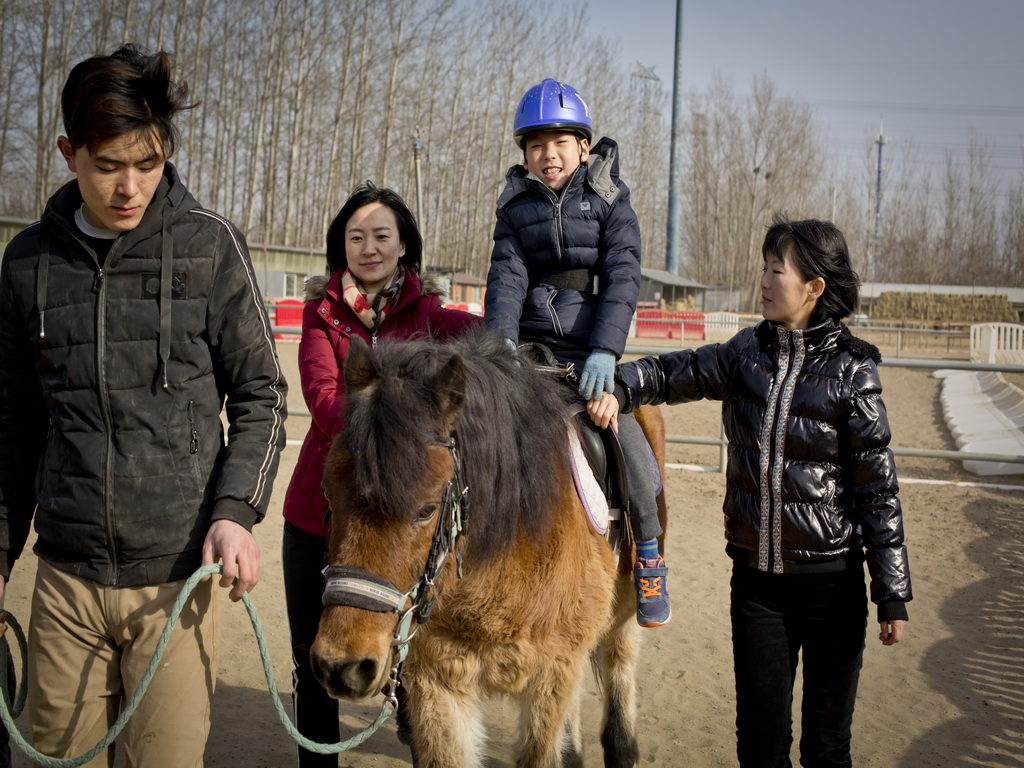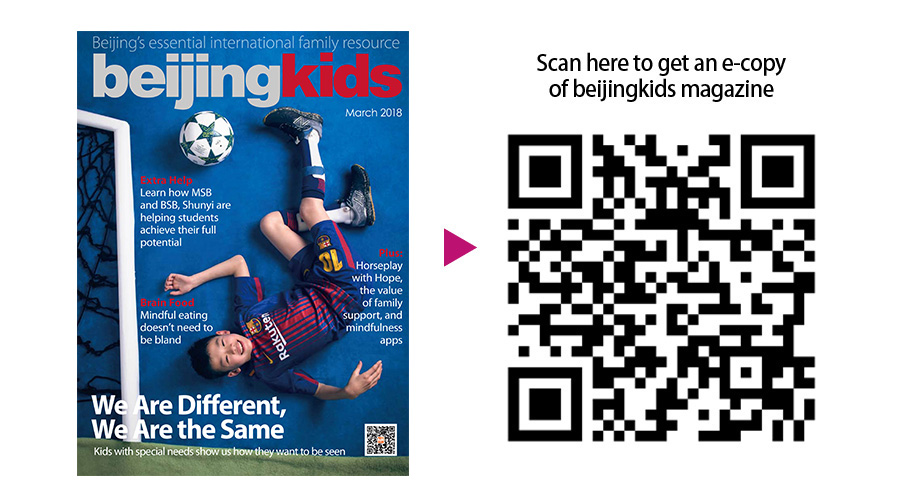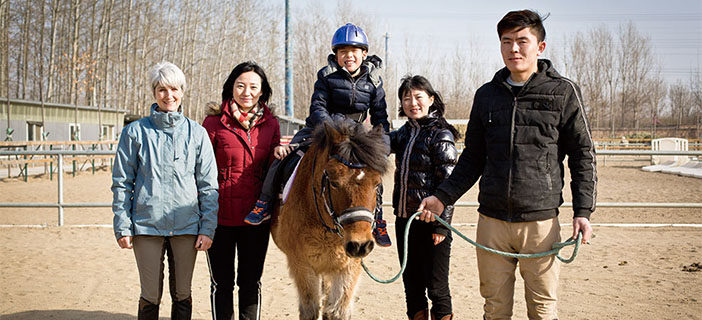“Children that never talk, will talk in the presence of a horse”.These were the words of a teacher working with Bethel Foster Home, describing the positive impact of Equine Assisted Activities and Therapy (EAAT).
Hippotherapy, one form of EAAT, is based on the human/animal relationship and also utilizes the dynamic movement of the horse to achieve certain therapeutic goals. This type of treatment is effective because the regular, symmetrical and rhythmic movement of the horse has a beneficial effect and simulates the human walk.
Therapeutic horseback riding and equine-assisted activities are the two most common EAAT methods, which can help people with physical, cognitive, and emotional disabilities such as cerebral palsy, muscular weakness, Down’s syndrome, Autism Spectrum Disorder, and visual impairment, to name only a few.
Though it can be dated back to the 1900s and is widely practiced in many countries, EAAT is still mostly unknown in China. However, the non-profit organization HOPE (Horses Offering People Enrichment) is on a mission to change this.

beijingkids attended a recent volunteer training session at HOPE in Shunyi,
where we joined the horseback riding experience of a 7-year-old Xiaole.
Now operating from Dongfang Mahui in Gaoliying village in Shunyi, HOPE was founded in 2009 by Dr.Priscilla Lightsey, a physical therapist, certified therapeutic riding instructor, and hippo-therapy clinical specialist from the US. Priscilla moved to Beijing in 2006 and found EAAT almost non-existent in China at the time, so she decided to set up an organization to promote EAAT to help more children in need.
HOPE is currently operated by Sun Haixia and Manuela Tournier (Riding for the Disabled Association Instructor), with the latter working as chief instructor, using her long and varied equine and teaching experience. There are a dozen of volunteers who act as side walkers. Volunteers commit to helping on a weekly basis. They are trained before they can start and receive training once a month to improve skills.
In partnership with Bethel Foster Home, Angle Home Orphanage, Shepherd’s Field Orphanage and Migrant Children Foundation, four Beijing-based non-profit organizations serving children with special needs or orphans, HOPE provides therapeutic horse riding courses and other equine-assisted activities. The sessions are free to orphans and migrant children, and there is a charge of RMB 400 for a 40-minute course for other children.
All the horses are well trained and well cared for. Before riding the horse, the children are encouraged to prepare the horse by grooming and maybe helping with the tack (saddle). This may facilitate a bonding between the horse and rider.
“The connection between the children and the horses is really important. Horse riding is not just a sport but a relationship; the trust between horse and rider really matters,” Tournier explained.
Besides daily individual therapeutic riding sessions, HOPE runs summer camps every year, which are attended by children with special needs, including children from areas outside of Beijing. Serving as a model program with high safety standards is a long-term goal for HOPE.

Here, Xiaole is enjoying the ride of his life.
In the years since its foundation, HOPE has developed gradually into a professional therapy provider, witnessing positive changes in children with special needs through EAAT.
“What we have gained from those children is, we think, much more than what we have offered to them.” Both Haixia and Tournier expressed this feeling when they shared some touching stories with beijingkids.
Cancan is an 8-year-old boy from Xi’an, who attended HOPE’s summer camp in 2017. When they met Cancan for the first time, he could not walk unassisted. After eight days attending the EAAT-focused summer camp, Cancan suddenly walked unaided when he was dismounted from his horse.
“We were so surprised, happy, and proud of him.” Tournier still can’t hide her excitement when replaying the short video that was taken, showing Cancan walking independently.
Though they are delighted to see the potential for development, they recognize that there is still a long way to go, since hippo-therapy in Beijing is still similar to a stumbling toddler, and it is better to take small but stable steps.
“It takes a long time to train and qualify an instructor. We aim to see a big future for HOPE, but we don’t want to expand rapidly at the expense of the safety for these children,” said Tournier.
To ensure proper safety standards, in a typical therapeutic riding session, the horse will be led by a horse handler and there will be a side walker on either side of the rider. Due to limited funds and a small number of trained therapy horses and staff members, HOPE currently only provides individual courses. They are aiming to train instructors to a high level, so they can develop HOPE to support a wider range of people.
“There are several elements, or to put it more accurately barriers, that make hippo-therapy a slow walker in China: high expense; a lack of qualified instructors and people’s lack of knowledge about it,” Haixia said.
Having worked at HOPE for more than two years, Haixia shared with beijingkids what has impressed her most and the reason she decided to stay with HOPE to continue promoting hippo-therapy, these are the magical changes that have happened to these kids.
“For children with severe autism, something as easy as turning a palm is like climbing a mountain for them,” she said. “In order to show them how to pull out a chair and take a seat, you need to repeat it a hundred times before they can follow your words and do what they’re asked to do.”
“Hippo-therapy works like magic. When I see the smile blossoming on the faces of children in front of horses or during the horse riding, it gives me incomparable satisfaction.”
“Fan Fan is a migrant child from Hunan. We are struck by his incredible willpower to achieve despite the many challenges of his physical disabilities. He is now back in his hometown, but we’re trying to arrange special lessons for him in the near future,” Haixia added.
However, hippo-therapy is not a cure fit for all. Before accepting a child into their program, HOPE will consult a doctor or a physiotherapist depending on the child’s condition.
There are many other examples showing the notable changes, which have happened thanks to EAAT, and parents are also excited to share with us the difference it’s made to their children.
“My child changed on the horse, and was happy, calm and able to pay attention,” said a parent of a child who attended the HOPE summer camp.
“We saw that our child with autism was able to connect with the horse, which is a great encouragement,” said another parent.
We visited HOPE on the last day of their 4-day volunteer training course and by chance, 7-year-old Xiaole was taking the horseback riding session and I could barely tell any difference between him and the other child, who didn’t have special needs. Seeing that smile on Xiaole’s face touched me deeply and I realized the power of hope and love, which is in abundance at these EAAT sessions at HOPE.

Photos: Uni You
This article appeared on p38-39 of beijingkids March 2018 issue.




